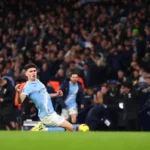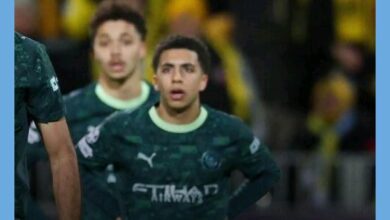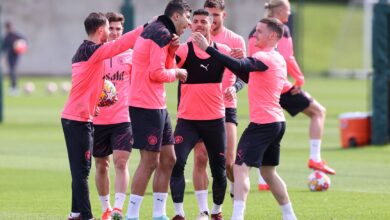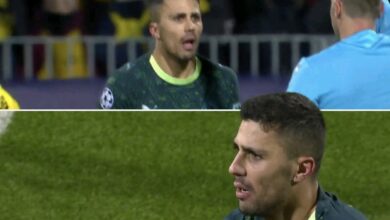Exceptional” Liverpool title winner ‘set to join’ Pep Guardiola at Man City in shock move
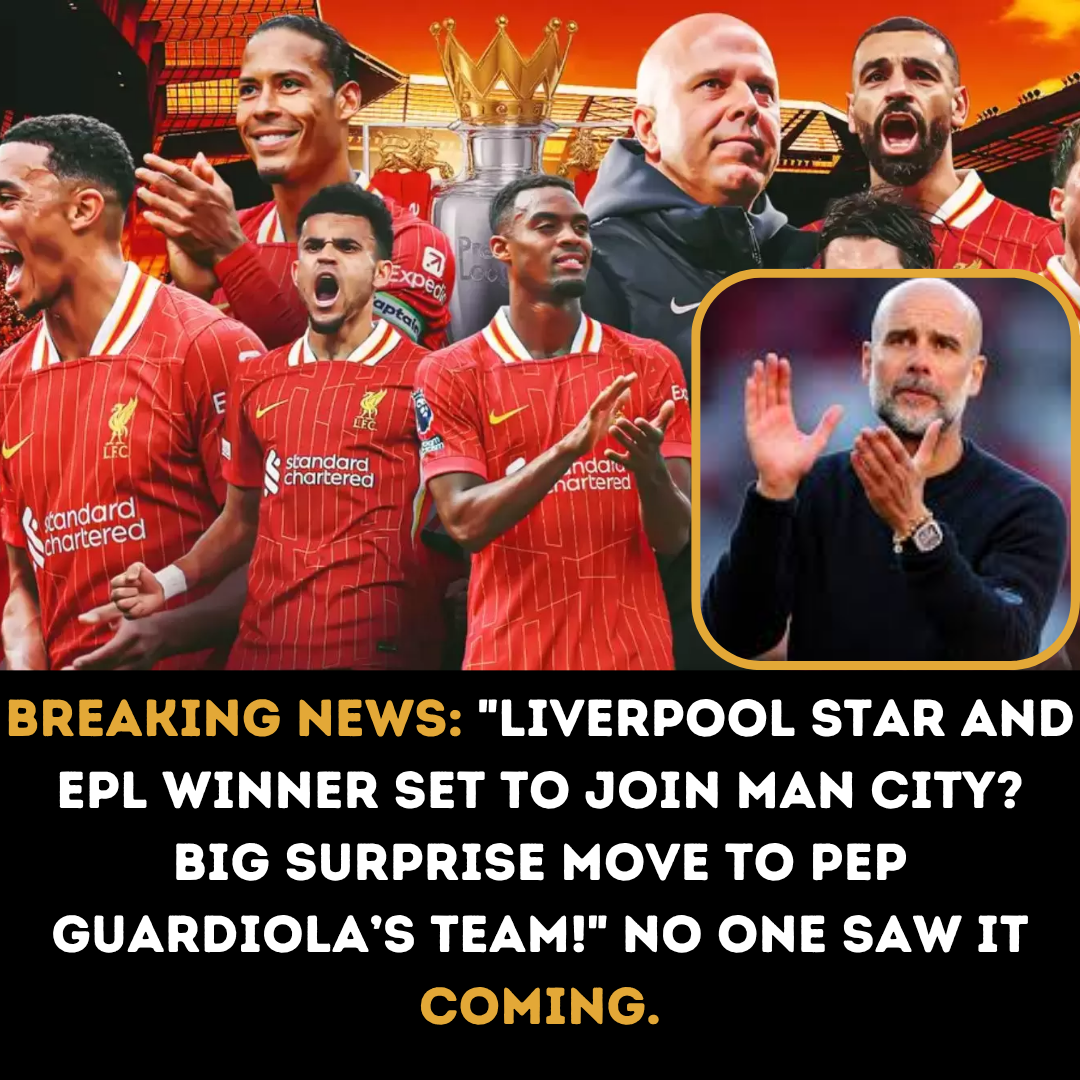
The football world is buzzing with anticipation following reports that Pep Lijnders, the former Liverpool assistant coach who played a pivotal role in the Reds’ recent golden era, is reportedly on the verge of a sensational move to Manchester City. This development represents one of the most intriguing coaching appointments in recent Premier League history, as a key architect of Liverpool’s success prepares to join forces with Pep Guardiola at the Etihad Stadium.
The Catalyst for Change: Manchester City’s Coaching Exodus
The foundation for this remarkable turn of events was laid earlier this week when Manchester City confirmed a significant reshuffling of their coaching staff. The Citizens announced that three key members of Pep Guardiola’s backroom team would be departing upon the expiration of their contracts this summer, creating multiple vacancies that need to be filled ahead of what promises to be another demanding campaign.
Juanma Lillo, perhaps the most prominent departure, has expressed his desire to return to his native Spain after two highly successful spells at Manchester City. The 59-year-old Spanish coach first joined Guardiola’s setup in 2020, quickly establishing himself as an integral part of the Citizens’ tactical brain trust. His influence extended far beyond the training ground, with many crediting his philosophical approach to the game as being instrumental in City’s continued evolution under Guardiola’s stewardship.
Lillo’s journey with City has been one of dedication and success. After his initial stint, he briefly departed in the summer of 2022 to take on the challenge of managing Qatari club Al Sadd, seeking to test his abilities as a head coach in a different footballing environment. However, the pull of working alongside Guardiola proved too strong, and he returned to the Etihad Stadium in 2023 as an assistant coach, bringing with him additional experience and a renewed perspective that further enriched City’s coaching dynamics.
Joining Lillo in his departure is Inigo Dominguez, who has spent two productive years at the club, contributing to the development of players and the refinement of tactical approaches that have kept City at the pinnacle of English and European football. Meanwhile, Carlos Vicens, who has been with the organization since 2017, is set to embark on a new adventure as the head coach of Portuguese side Braga.
Vicens’ story at City is particularly noteworthy, representing the club’s commitment to developing coaching talent from within. He initially made his mark by leading the Under-18s to FA Youth Cup glory in 2020, demonstrating his ability to nurture young talent and implement the club’s footballing philosophy at the grassroots level. His subsequent four years working directly with Guardiola’s first-team squad provided him with invaluable experience at the highest level of the game, making him an attractive proposition for clubs seeking coaches with both tactical acumen and practical experience.
The Dutch Connection: Pep Lijnders’ Journey to Prominence
To understand the significance of Lijnders’ potential appointment, it’s essential to examine his remarkable journey through football coaching and his instrumental role in Liverpool’s recent renaissance. The 42-year-old Dutchman has carved out a reputation as one of the most innovative and influential assistant coaches in modern football, earning widespread respect for his tactical intelligence, motivational skills, and ability to translate complex strategic concepts into practical on-field improvements.
Lijnders’ coaching philosophy has been shaped by diverse experiences across different footballing cultures and environments. His early managerial experience came with Dutch outfit NEC Breda in 2018, where he spent four months honing his skills as a head coach and gaining valuable insights into the challenges of leading a professional football team. This experience, though brief, provided him with a different perspective on football management and helped him develop a more holistic understanding of the game.
However, it was his partnership with Jurgen Klopp at Liverpool that truly established Lijnders as one of football’s most respected coaching minds. Their collaboration began during a period when Liverpool were seeking to return to the pinnacle of English and European football, and Lijnders quickly proved himself to be far more than just an assistant coach. He became Klopp’s tactical confidant, strategic advisor, and philosophical sounding board, playing a crucial role in developing the high-intensity, pressing-based style of play that became synonymous with Liverpool’s success.
The partnership between Klopp and Lijnders was built on mutual respect, shared vision, and complementary skills. While Klopp provided the charismatic leadership and emotional drive that inspired players to exceed their limitations, Lijnders contributed the tactical sophistication and analytical depth that gave Liverpool their competitive edge. His ability to break down complex tactical scenarios, identify opponent weaknesses, and devise innovative solutions to strategic challenges made him an indispensable part of Liverpool’s coaching setup.
The Golden Era: Liverpool’s Trophy-Laden Success
The fruits of the Klopp-Lijnders partnership were evident in Liverpool’s extraordinary trophy haul during their time together. The duo guided the Reds to eight major trophies, fundamentally transforming the club’s fortunes and restoring their status as one of world football’s elite institutions.
The pinnacle of their success came in 2019 when Liverpool claimed the Champions League trophy, ending a 14-year wait for European glory. The campaign was a masterclass in tactical evolution and mental resilience, with Lijnders’ strategic input proving crucial in navigating the complexities of European competition. From the group stages through to that unforgettable final against Tottenham in Madrid, Liverpool demonstrated a tactical flexibility and strategic intelligence that bore the hallmarks of Lijnders’ influence.
Perhaps even more significant was Liverpool’s Premier League triumph in 2020, which ended the club’s agonizing 30-year wait for top-flight success in England. This achievement represented the culmination of years of patient building, tactical refinement, and strategic planning. Lijnders’ role in developing the pressing system that became Liverpool’s trademark, his work on set-piece strategies, and his ability to adapt tactical approaches based on opponent analysis were all crucial factors in the Reds’ domestic dominance.
The success wasn’t limited to these two major trophies. Liverpool’s trophy cabinet during the Klopp-Lijnders era also included FA Cups, League Cups, UEFA Super Cups, and FIFA Club World Cups, demonstrating their ability to compete successfully across multiple competitions while maintaining tactical consistency and strategic focus.
Recognition and Respect: Klopp’s Tribute to His Right-Hand Man
The depth of respect and admiration that Klopp held for Lijnders became evident when both announced their departures from Liverpool towards the end of the previous season. In a heartfelt tribute that highlighted the profound impact of their partnership, Klopp didn’t hesitate to identify Lijnders as the most influential figure in Liverpool’s recent transformation.
“The most influential guy in the last years definitely in this club was Pep Lijnders,” Klopp declared in an interview with Liverpool’s official website. This wasn’t mere politeness or diplomatic praise; it was a genuine acknowledgment of Lijnders’ exceptional contribution to Liverpool’s success. Klopp continued, “The job he did is absolutely exceptional. The inspiration he is for me is absolutely exceptional. The relationship we grew is absolutely exceptional. Outstanding, everything.”
These words carry particular weight coming from a manager of Klopp’s stature and experience. Throughout his career, Klopp has worked with numerous coaches and tactical experts, yet his effusive praise for Lijnders suggests a professional relationship that transcended the typical manager-assistant dynamic. Their partnership represented a true collaboration between two football minds who complemented each other perfectly, creating a coaching combination that proved to be greater than the sum of its parts.
Klopp’s commitment to supporting Lijnders’ future endeavors was equally telling: “And I’m really looking forward to follow his way and to support if necessary. And if I can, I will definitely do.” This statement revealed not just professional respect but genuine personal affection and a desire to see Lijnders succeed in his own right.
The Interim Challenge: Red Bull Salzburg Experience
Following his departure from Liverpool, Lijnders faced the challenge of establishing himself as a head coach in his own right. His appointment at Red Bull Salzburg represented an opportunity to apply the tactical and strategic principles he had helped develop at Liverpool in a different environment and footballing culture.
Red Bull Salzburg, with their emphasis on high-energy football, youth development, and tactical innovation, seemed like an ideal fit for Lijnders’ coaching philosophy. The club’s connection to the broader Red Bull football network, with its focus on data-driven analysis and modern coaching methods, aligned well with the analytical approach that had characterized his work at Liverpool.
However, the transition from assistant coach to head coach proved more challenging than anticipated. Despite his extensive experience and proven track record, Lijnders found it difficult to translate his previous success into immediate results at Salzburg. The Austrian giants, accustomed to domestic dominance and European competition, experienced a period of inconsistency that ultimately led to Lijnders’ dismissal in December, after just six months in charge.
This setback, while disappointing, is not uncommon in football coaching. Many successful assistant coaches have struggled in their initial attempts at management, only to find success later in their careers. The experience at Salzburg, though brief, would have provided Lijnders with valuable insights into the unique challenges of head coaching and the different skill set required to lead a team independently.
The Manchester City Opportunity: A Perfect Fit?
The reported opportunity to join Manchester City’s coaching staff represents a fascinating new chapter in Lijnders’ career. Working under Pep Guardiola would provide him with exposure to different tactical philosophies and coaching methods while allowing him to contribute his own expertise to one of world football’s most successful teams.
According to reliable transfer journalist Fabrizio Romano, Lijnders is set to become part of Manchester City’s coaching staff, filling one of the vacancies created by the summer departures. This appointment would represent a significant coup for City, bringing in a coach with proven experience at the highest level and a track record of success in the Premier League.
The potential partnership between Guardiola and Lijnders is intriguing from multiple perspectives. Both coaches share a commitment to attacking football, tactical innovation, and the development of young players. However, their approaches have distinct characteristics that could complement each other effectively. While Guardiola is renowned for his possession-based philosophy and intricate tactical systems, Lijnders brings experience in high-intensity pressing and counter-attacking strategies that could add new dimensions to City’s tactical repertoire.
The Kolo Toure Factor: A Reunion at the Etihad
Adding another layer of intrigue to this developing story is the potential appointment of Kolo Toure to Manchester City’s coaching staff. The former Ivory Coast international, who spent four successful years at City between 2009 and 2013, could be returning to his former club in a coaching capacity.
Toure’s playing career at City coincided with the club’s emergence as a major force in English football. He was part of the squad that won the FA Cup in 2011, ending the club’s 35-year trophy drought, and played a crucial role in City’s historic first Premier League title triumph in 2012. His experience and understanding of the club’s culture and expectations could prove invaluable in a coaching role.
Following his retirement from playing in 2017, Toure has been steadily building his coaching credentials. He served as an assistant coach under Brendan Rodgers at both Celtic and Leicester City, gaining experience in different footballing environments and learning from one of the Premier League’s most respected managers. His brief stint as head coach at Wigan Athletic, though unsuccessful, provided him with valuable experience in team management and the challenges of leading a struggling club.
Toure’s potential return to City would represent more than just a coaching appointment; it would be a homecoming for a player who contributed significantly to the club’s modern success story. His combination of playing experience at the highest level, coaching development under Rodgers, and intimate knowledge of Manchester City’s culture and expectations could make him a valuable addition to Guardiola’s staff.
Tactical Implications: What Lijnders Could Bring to City
The potential addition of Lijnders to Manchester City’s coaching staff raises fascinating questions about the tactical evolution that could follow. His extensive experience with Liverpool’s high-intensity pressing system could provide Guardiola with new tactical options and strategic approaches.
Lijnders’ expertise in developing pressing triggers, coordinating defensive transitions, and maximizing the effectiveness of counter-pressing could add new dimensions to City’s already sophisticated tactical system. While Guardiola’s teams are renowned for their possession-based approach and patient build-up play, the addition of Lijnders’ pressing expertise could create hybrid tactical systems that combine the best elements of both philosophies.
Furthermore, Lijnders’ experience in European competition could prove invaluable as City continue their pursuit of Champions League success. His knowledge of knockout tournament dynamics, experience in managing high-pressure situations, and understanding of the tactical adjustments required for European competition could provide Guardiola with additional strategic resources.
The Broader Implications: Coaching Mobility in Modern Football
The potential move of Lijnders from Liverpool to Manchester City reflects broader trends in modern football coaching. The traditional loyalty between coaches and clubs has given way to a more fluid professional environment where coaches seek opportunities to develop their skills and advance their careers, regardless of historical rivalries.
This mobility has several implications for the development of football tactics and coaching methods. The cross-pollination of ideas between different clubs and coaching philosophies has accelerated tactical innovation and led to more sophisticated strategic approaches across the game. When successful coaches move between rival clubs, they bring with them insights and methods that can enhance their new teams while contributing to the overall evolution of football tactics.
Looking Ahead: The FIFA Club World Cup Challenge
The timing of these potential appointments is particularly significant given Manchester City’s upcoming participation in the FIFA Club World Cup in the United States, beginning on June 18. This tournament represents a new challenge for Guardiola’s team and an opportunity to demonstrate their quality against the world’s best club teams.
If Lijnders and potentially Toure join City’s coaching staff before this tournament, they would have the opportunity to make an immediate impact on the team’s preparation and tactical approach. The Club World Cup’s unique format and the variety of opponents from different continents would provide an ideal testing ground for new tactical ideas and coaching methods.
The tournament could serve as a crucial integration period for the new coaching staff, allowing them to establish working relationships with the players and contribute to tactical preparations in a high-stakes environment. Success in this competition could provide early validation of the new coaching appointments and set the tone for the upcoming domestic season.
Conclusion: A New Chapter in Coaching Excellence
The potential appointment of Pep Lijnders to Manchester City’s coaching staff represents one of the most intriguing developments in recent Premier League history. His journey from Liverpool’s assistant coach to a potential key figure in City’s setup illustrates the complex dynamics of modern football coaching and the opportunities for professional growth and development within the game.
If confirmed, this appointment would bring together two of football’s most innovative tactical minds in Guardiola and Lijnders, creating a coaching partnership with the potential to push the boundaries of tactical innovation even further. The combination of Guardiola’s possession-based philosophy and Lijnders’ pressing expertise could produce exciting new tactical approaches that influence the broader development of football strategy.
For Manchester City, the addition of Lijnders would represent a significant strengthening of their coaching resources and a demonstration of their commitment to maintaining their position at the forefront of football innovation. For Lijnders himself, the opportunity to work with Guardiola and contribute to City’s continued success would provide a platform to further develop his coaching abilities and potentially prepare for future head coaching opportunities.
As the football world awaits official confirmation of these appointments, the prospect of seeing how this new coaching combination performs promises to be one of the most compelling storylines of the upcoming season. The fusion of different tactical philosophies, the reunification of former players with their clubs, and the continued evolution of coaching methods all contribute to a narrative that extends far beyond simple personnel changes.
In an era where marginal gains can determine the difference between success and failure at the highest level, the addition of coaches with proven track records of excellence could provide Manchester City with the additional edge they need to maintain their dominance domestically and finally achieve their ultimate goal of sustained success in European competition.



